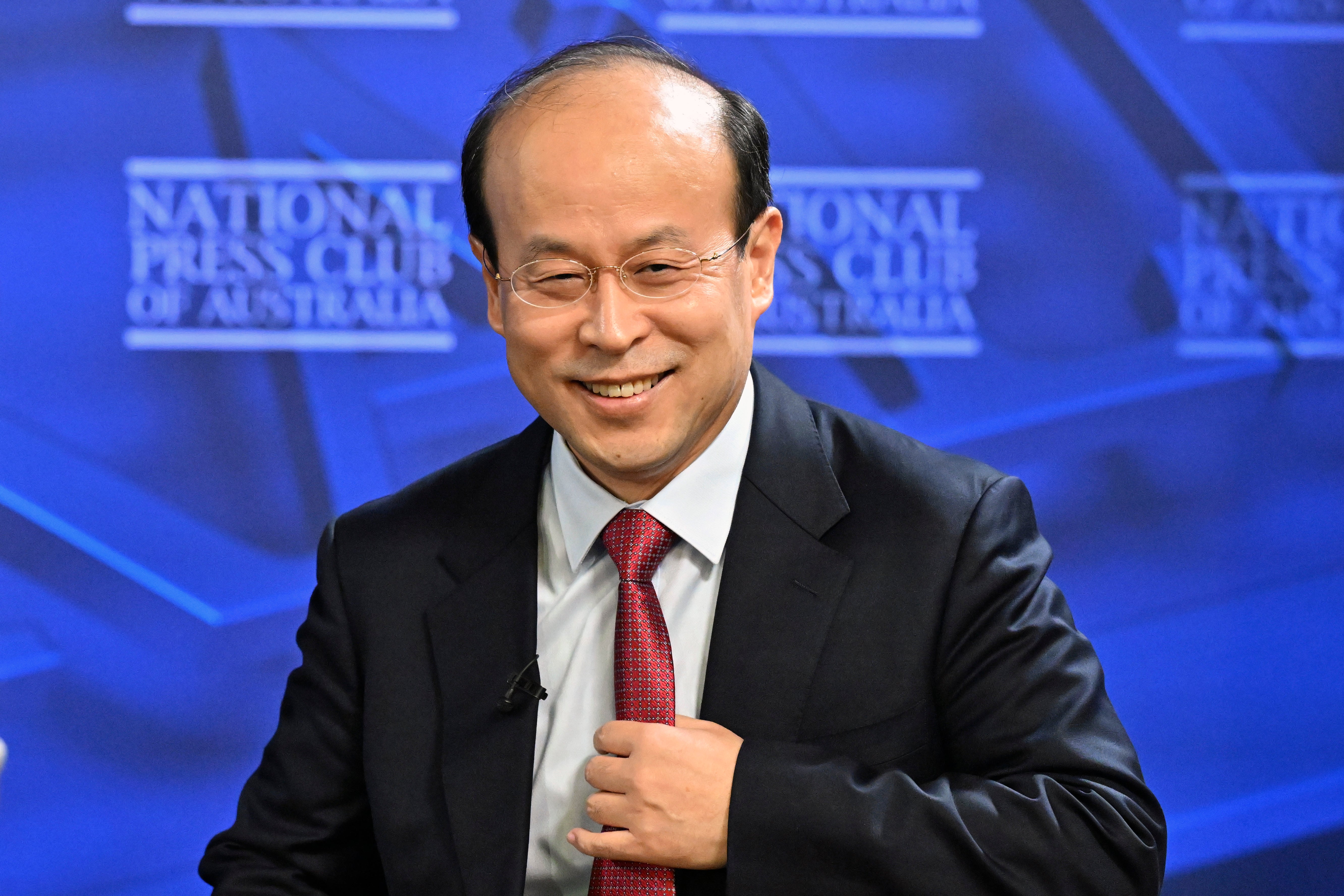Chinese envoy tells Australia to show 'caution' over Taiwan
A Chinese envoy says Australia’s recent change of government is a chance to “reset” its troubled relationship with China, but the new administration must “handle the Taiwan question with caution.”

Your support helps us to tell the story
From reproductive rights to climate change to Big Tech, The Independent is on the ground when the story is developing. Whether it's investigating the financials of Elon Musk's pro-Trump PAC or producing our latest documentary, 'The A Word', which shines a light on the American women fighting for reproductive rights, we know how important it is to parse out the facts from the messaging.
At such a critical moment in US history, we need reporters on the ground. Your donation allows us to keep sending journalists to speak to both sides of the story.
The Independent is trusted by Americans across the entire political spectrum. And unlike many other quality news outlets, we choose not to lock Americans out of our reporting and analysis with paywalls. We believe quality journalism should be available to everyone, paid for by those who can afford it.
Your support makes all the difference.Australia’s recent change of government was a chance to “reset” its troubled relationship with China, but the new administration must “handle the Taiwan question with caution,” a Chinese envoy said on Wednesday.
Chinese Ambassador to Australia Xiao Qian said he was “surprised” that Australia had signed a statement with the United States and Japan that condemned China’s firing of missiles into Japanese waters in response to U.S. House Speaker Nancy Pelosi’s visit to Taiwan last week.
“We hope that the Australian side could take China-Australia relations with serious attitude. Take the ‘One China’ principle seriously, handle the Taiwan question with caution,” Xiao told the National Press Club.
Xiao would not say when the live-fire military exercises near Taiwan might end. He said an announcement would be made at a “proper time.”
China wanted a peaceful reunification with Taiwan, which Beijing considers a self-governing province, but Xiao did not rule out use of force.
“We can never rule out the option to use other means. So when necessary, when compelled, we are ready to use all necessary means,” Xiao said. “As to what does it mean by ‘all necessary means?’ You can use your imagination.”
Chinese Foreign Ministry spokesperson Wang Wenbin this week said Australia had “wantonly criticized China’s legitimate, justified and lawful measures to safeguard its sovereignty and territorial integrity.”
Wang urged Australia to “stop interfering in China’s internal affairs.”
“In the past few years, China-Australia relations have experienced serious difficulties for reasons caused by the Australian side,” Wang said.
Beijing has eased a ban on minister-to-minister contacts with Australia since Prime Minister Anthony Albanese’s government was elected in May. The two countries’ defense and foreign ministers have since had face-to-face meetings.
Chinese Premier Li Keqiang wrote to congratulate Albanese on his election and Albanese had replied.
China would discuss with Australia whether conditions were right for a meeting between Albanese and Chinese President Xi Jinping in November when the leaders are in Indonesia for a Group of 20 summit.
“As ambassador, I’m hoping for the best and I’m going to try to make all my efforts toward that direction,” Xiao said.
Xiao said the new Australian government had made a good start to its relationship with China after a “difficult time for a couple of years.”
“But it’s a good start only. There’s a lot to be done to really reset this relationship,” Xiao said.
Albanese has urged China to demonstrate good faith toward the new government by lifting a series of official and unofficial trade barriers that is costing Australian exporters tens of billions of dollars.
Xiao defended the barriers and pointed to the economic damage Australia had caused Chinese-owned telecommunications giant Huawei by banning it from rolling out the country’s 5G network due to security concerns.
Acting Prime Minister Richard Marles, who is filling in while Albanese is on vacation this week, was undeterred by the hostile Chinese reaction to Australia’s criticisms of the military response to Pelosi’s visit.
“China is going to say what China says. We control our end of this equation. And in describing that end, it’s this: We will engage with the world with respect, with professionalism, with sobriety, with a faith in diplomacy,” Marles said Wednesday.
“And we will continue to do that. While the government has changed, our national interest hasn’t. We will also speak to our national interest and we will speak to it with vigor,” Marles added.